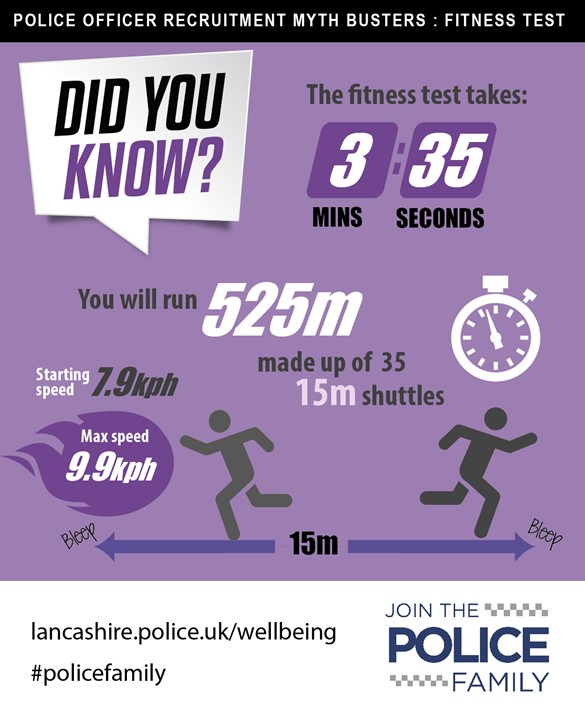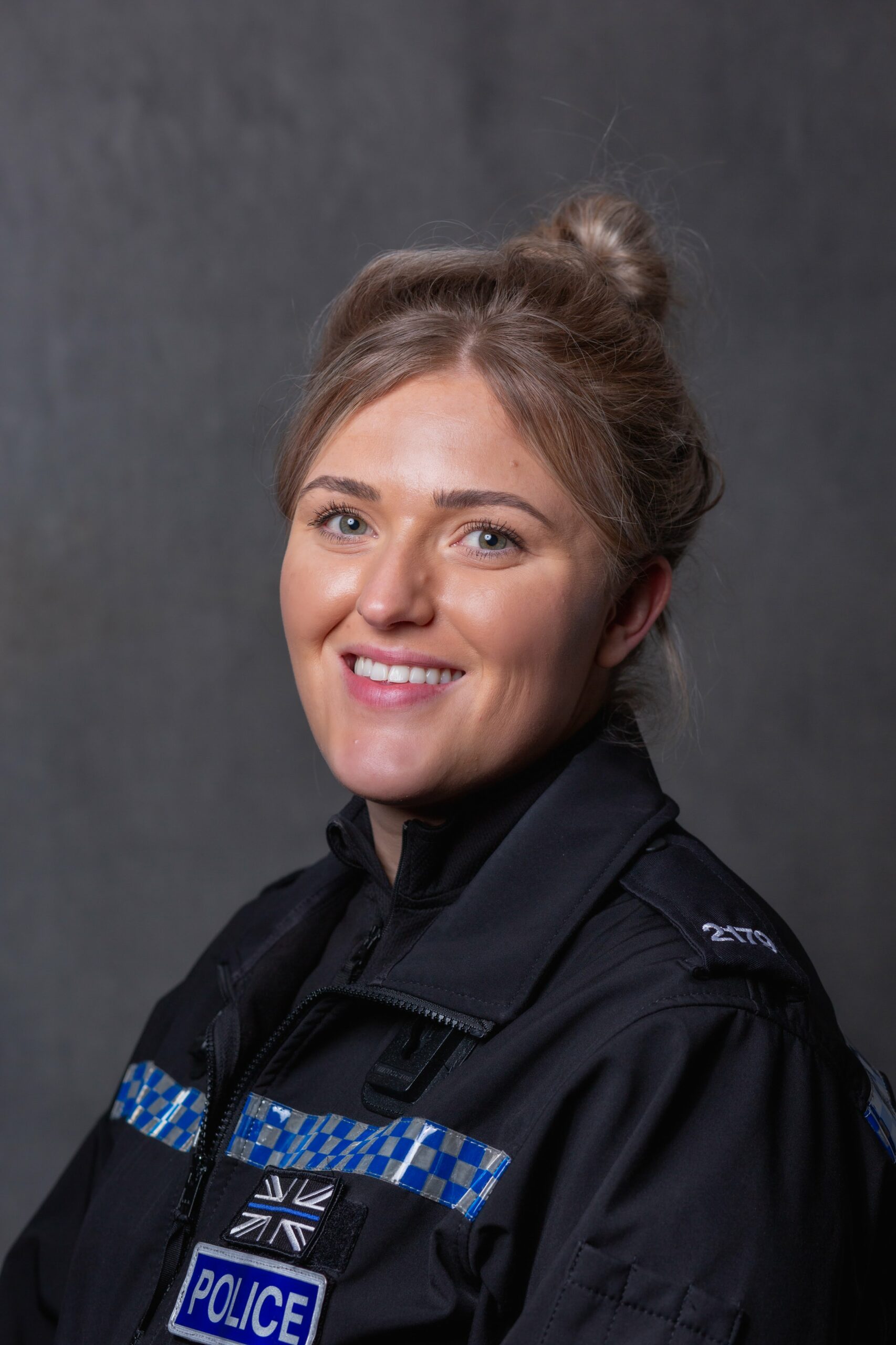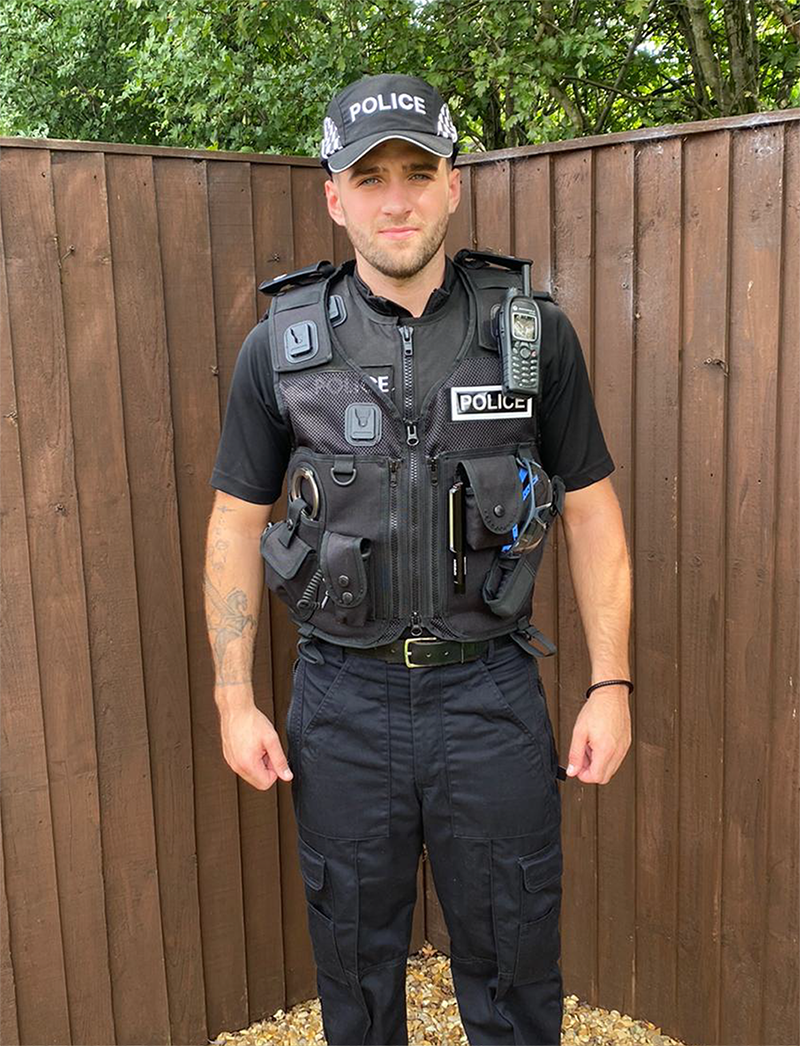Police Constable Degree Apprenticeship
Police Constable Degree Apprenticeship
Applications are closed. Sign up to job alerts to be the first to find our when they open.
*Important Update* The Police Officer application form is no longer a full competency based question style and only basic personal information is now required. This means it should only take around 10 minutes to complete the whole application form.
Earn while you learn with the Police Constable Degree Apprenticeship (PCDA), a three-year programme where you can study for a degree whilst training on the job. To apply for this role you need to have a level 3 qualification.
This entry route suits such a vast array of careers goals. For those at the beginning of their career, they will be fully supported and given everything they need to succeed in the role and with all studying elements. For those looking for a change of career, they will benefit from this support and will utilise their existing skills in the role.
Student officers are assigned to one of our Supported Development Units (SDU), where an appointed Tutor Constable will chart their progress as they alternate between periods of study and working on the front line, putting theory into practice with help from officers and staff. Plus everyone’s in the same boat so apprentices can share experiences and set up study groups.
By the time they’re fully-fledged officers, our recruits will be well prepared to specialise in their chosen area of policing: immediate response, community, road, intelligence or investigation. For those who don’t already have a degree, this is a great way to start a career with Lancashire Police, with a starting salary of £28,551 / after 12 months £29,751 and rising to £46,044 over seven years and university fees paid by the constabulary.
Check out our latest vlog posts;
Could you save a life like PC Jack?
Could you get justice for victims of crime like PC Marc?
Support for Underrepresented Groups
We offer support (Positive Action) to all under-represented groups. by providing advice and guidance before and during the selection process.
Most candidates who attend positive action support sessions will say that they benefited considerably. Having the opportunity to become familiar with policing processes increased their knowledge and gave them confidence to submit an application of a higher standard. Equally so, those who attend national assessment centre support sessions have a higher chance of success, than those from under-represented groups who don’t.
This is a competitive process whereby sacrificing a small amount of your time, could be the difference between a pass or fail.
So, BEFORE you submit your application form, CONTACT US at [email protected]
See our Positive Action section at the bottom of the page for full information.
Entry Requirements
Recruits need level 2 qualifications (GCSEs / functional skills) in English and Maths at Grade 4 (C) and a level 3 qualification ( two A-Level’s or NVQ etc).
Run in conjunction with the University of Central Lancashire (UCLan), the PCDA leads to a BSc in Professional Policing Practice, with training at our Hutton HQ, UCLan Preston and online.
Check the list of qualifications to understand what you need to before joining.
You MUST hold a full manual driving licence at the time of application.
You can apply whilst waiting to complete your qualification but must have your final result before final offer of employment. You can also apply aged 17 but must be aged 18 before you start.
Please Note:
If you have be unsuccessful at the in force interview at Hutton Headquarters within the last 3 months, you are not eligible to apply.
If you have failed any pre-employment checks – vetting, medical or fitness and your circumstances have not changed you will not be progressed through this recruitment process
Case Study
PC Steph, 23, began her career at Lancashire Constabulary at the age of 16 after joining our Cadet’s programme whilst studying for her NVQ in Public Services. Steph continued her career at the age of 18 as a PCSO based in Nelson over in the East of the county. Steph said: “I have always wanted to be a Police Officer and am so excited to have achieved this career goal. I was initially inspired by my Grandad who was a lifelong Police Officer and retired as an Inspector. He was very proud of his career with Lancashire Constabulary and it really made me want to follow in his footsteps. Starting at a new station as a new officer was a little daunting but I couldn’t have been made to feel more welcome. Everyone is very friendly, smiley and offers their support which really helps when you are learning a brand-new job.
Commencing the role and learning at the same time has been quite a smooth process for me however I found that I definitely need to make sure I keep focused and dedicated to find the right work life balance. Also, learning to write for a degree level qualification was something totally new to me, however the support from my tutors is there and I am looking forward to achieving my degree in the next 3 years. A particularly proud moment for me was being the first out of my intake to achieve Independent Patrol Status (IPS). I have worked incredibly hard and this felt like a reward for all my efforts.
Case Study
PC Emma is proof that you can successfully make a major career change later in life whilst juggling family commitments. The 40-year-old mum of four has already put her ability and determination to overcome obstacles to good use whilst advancing in her previous role at Blackpool Borough Council as a Family Support Worker.
Emma feels her life and career experiences have paved the way for her to join the police, equipping her with valuable, transferable skills. She said: “I was a teenage mum, it’s been hard, but I have four amazing children, three girls and one boy. Applying to be a Police Officer not only seemed the natural next step to learning many new skills, but also a career in which I can call upon my previous experiences.”
During my career I worked closely with the Families in Need Officers and this inspired me to want to become a Police Officer myself. As a Family Support Worker in Blackpool we had police officers on our team, and they were always really friendly. A lot of them were coming towards the end of their career so had lots of different stories to tell. I thought if they can do it, I could probably do it as well. I love to challenge myself and have constantly furthered my education as I’ve progressed, and I eagerly await the new challenges the role of Police Officer will bring.
Case Study
PC Sean, 24, is passionate about helping the vulnerable. He previously worked as an outdoor instructor in a special education school and has served in the Parachute Regiment in the Army and as a Police Community Support Officer (PSCO).
To meet entry requirements, Sean gained a level 3 Personal Training qualification, finishing the week before PCDA applications opened. Posted to Blackpool for his tutor phase, he hopes to stay in the resort, working to improve local communities: He explained: “My experience means I take a more sympathetic, problem-solving approach to certain situations, including looking at the bigger picture of why it’s happened and how we can stop it happening again. That fits neighbourhood policing well.”
The PCDA is tough but good. There are certain elements when it all comes at once and you can be finishing a shift at 7am and still have essays to do. But we’re supportive of each other and everyone is sympathetic about the workload. Typically people think ex-army can’t join the police as they’re not qualified, and there is high demand for the PCDA, but I managed it and I’m proud to have got through.
Police Constable Degree Apprenticeship Application Process
The whole recruitment process can take some time as you go through the stages detailed and can take around 7 months.
When applications are open, you are able to complete and submit your form online. As of July 2022, there is an updated application form in place which is no longer a full Competency Based Question style application question set. This means that it will take around 10 minutes to complete the whole application form.
Make sure you read the application form carefully and provide full answers to all the questions.
The PC recruitment team undertake eligibility checks for all candidates, this involves checking candidates have the relevant level of qualification, the right to work in the UK, cautions and convictions and a minimum of 3 years residency within the UK.
Once these are completed and successfully passed the PC recruitment team will contact you via the recruitment portal to invite you to the next stage of the recruitment process. Should a candidate fail any of the eligibility checks you will receive an email to explain why.
National Sift
All candidates will be required to undertake The National Sift, the exercises will measure a candidates suitability for the role of a Police Constable. The National Sift contains Situation Judgement Tests (SJT) and Behavioural Style Questions (BSQ).
Ahead of the National Sift the PC Recruitment team will send candidates the required information, including a ink to the tests. Once a candidate completes all the elements of the National Sift they receive their result immediately
On-line Assessment Centre (OAC)
Candidates successful at the National Sift will be invited to undertake the Online Assessment Centre (OAC)
There is a huge amount of information on the College of Policing website which can help you understand more about both of these processes.
Don’t worry we will inform you of everything you need to know before the assessments takes place so you will be fully prepared.
If you have failed either the National Sift or OAC, you are not permitted to take the assessment process more than once in any three month period. Unsuccessful candidates can reapply three months after completing the process (from the date they commenced the National Sift or OAC). They will be required to retake the whole process. It should be noted that unsuccessful candidates can only apply to retake once in a 12-month period.
At this stage you will be invited to attend an interview. This could be face to face or online via Teams.
If your application passes the initial stages we will contact you to arrange an interview. The interview questions will be based around the same criteria as detailed on the candidate specification and will seek to find out how you would perform in the job in question.
We would also suggest visiting other sections of our website for information on our values and force priorities.
If you are successful at interview, we will send you a conditional offer of employment together with details of the next steps. This offer will be subject to security, health and reference checks.
View our detailed FAQ’s surrounding medical conditions before you complete your application form to understand any limitations there might be.
As a summary though;
Police officers encounter stressful situations, trauma, physical confrontation and work long hours on shifts. You’ll need to be resilient enough to cope with the demands and pressures of police working and be in good health mentally and physically.
After passing the recruitment stages, you’ll need to complete a medical questionnaire and get it signed by your doctor. You’ll then have a medical examination to ensure you meet our health standards.
You’ll also be asked to provide a urine sample whilst at your appointment, which we’ll test for illegal substances.
We will test your hearing to ensure it meets home office standards.
We follow the Government’s guidance on police officer health requirements. You can find out more about these and check the list of specific health conditions.
Biometric Vetting
After your medical appointment, you will also be required to have your fingerprints scanned and a DNA sample (mouth swab) taken to check against the national police database.
Eye Sight
You must have:
Corrected distance vision of 6/12 or better with either the right eye or left eye.
6/6 vision with both eyes together with spectacles or contact lenses if worn.
Corrected near visual acuity of 6/9 or better, with both eyes.
You’ll need to go to an optician at the medical stage to have your eyes tested and this will be checked at your medical assessment. If you don’t meet the standard we’ll be unable to take your application any further. Please note that these are minimum standards and do not guarantee entry into specialist roles. You can wear glasses and contact lenses.
Information about colour blindness
If your colour blindness is monochromat, you will not meet the eyesight standard. However, trichromats and dichromats are acceptable.
Fitness
When it’s time to complete your fitness test we’ll invite you to our headquarters at Hutton, Preston.
Use the information below to help you to prepare for the fitness test. If you’re new to fitness training or are a beginner we recommend that you seek medical advice prior to commencing any exercise programme.
The test we use is the multi-stage endurance test (also known as the bleep test, shuttle run or pacer test). It’s a well-recognised test that gives a clear understanding of fitness level and one that you can practice prior to the assessment to give yourself the best possible chance of success.
If you don’t reach the required level, you won’t be able to proceed to the next stage. But, our assessor may give you the opportunity to try again.
If, after three attempts you haven’t been able to pass then you’ll need to wait 6 months before re-applying.

Bleep Test
The fitness test is part of police life. You’ll retake it as part of your training and also take the test every year to ensure you’re maintaining a suitable level of fitness for a service officer.
The multi-stage endurance fitness test is one of the most widely used tests of endurance. It’s also easy to prepare for as all you’ll need is a flat level surface that’s 15 metres long and you can use our training recording or look on iTunes or Google Play for a bleep test training app. If using an app for your practice, ensure it is for 15 metres as some are for 20 metre runs.
What to Expect at the Bleep Test
The test involves running back and forth in a straight line continuously along a 15 metre track. Every time you reach the edge you’ll place your foot on the line and turn, ready for the next bleep when you’ll set off again.
The test is progressive in that the bleeps start off slowly but become closer together so as the test progresses you’ll need to run faster to reach the edge before the next bleep.
The first running speed is ‘level 1’, the second is ‘level 2’ and so on. Each level lasts around 50 seconds, but the number of shuttles at each level increases as the test progresses.
At the end of each level you’ll hear a double bleep and the fitness tester will announce that you’re starting a new level. You’ll need to reach a ‘level 5.4’ rating to pass the test.
You’ll need to meet the following:
Aged 17 or above on the day you apply and must be aged 18 or over upon appointment (we don’t have an upper age limit and value the life experience that career changers bring).
- Not be a member of the British National Party (BNP) or other organisations such as Combat 18 or The National Front.
- If you have a criminal record, this doesn’t mean you won’t be considered. This depends on the nature of your conviction. Please declare any cautions or convictions on your application form. If you don’t you could fail vetting due to integrity concerns.
- Vetting clearance is unlikely to be granted if you have existing county court judgements (CCJ) outstanding against you. If you have been registered bankrupt, clearance is unlikely until three years have passed since discharge of the debt.
- Tattoos which are offensive, garish, prominent or numerous are not acceptable. Please supply photos and measurements of any tattoos along with your application.
- You can re-attend our National Assessment Centre (NAC) if you failed the NAC within the last 3 months providing you were within 5% of the pass mark. Otherwise you will need to wait 6 months between taking the NAC.
- You must be a British Citizen, or hold a passport from a full EU Member State. You can also apply if you are a Commonwealth citizen or foreign national who is resident in the UK with indefinite leave to remain.
Residency Requirement
You must have lived in the UK for three continuous years, immediately before applying, to meet the minimum residency requirement. This is because we need to vet all applicants in an equitable manner, which requires a checkable history in the UK. Applicants who cannot be vetted cannot be appointed.
If you live permanently in the UK, you are considered to be a UK resident. If you have moved overseas and severed major ties to the UK (e.g. closed bank accounts and sold property) you are considered to have surrendered your residency in the UK. This applies to people who maintain bank accounts purely for the purpose of receiving regular payments, e.g. a UK pension.
If you have spent a significant period of time overseas (normally up to one year) without returning to the UK but intend to return in the future, then we may be able to consider you. This might apply, for example, if you have taken a gap year or similar before or following university, travelled for a year or spent time overseas visiting family (not an exhaustive list). We will need you to provide full details and will consider each case on its own merits.
If you have been posted overseas as part of your service with HMG or the armed forces you are considered to have been resident in the UK for the period that you were abroad.
If you have been overseas as the spouse, partner or dependent of a member of the armed forces posted overseas then it may be possible to obtain the necessary assurance for a checkable history to be established. We will consider each case on its merits.
Criminal Convictions
If you have convictions or cautions this doesn’t necessarily mean that we won’t be able to appoint you. It depends on the role you’ve applied for and the nature of the offence.
The Rehabilitation of Offenders Act 1974 (Exceptions) Order 1975 does not apply to police officer posts, including the special constabulary. You must therefore declare all previous convictions and cautions.
Lancashire Constabulary apply the criminal convictions guidance contained in the College of Policing Vetting Code of Practice and associated Authorised Professional Practice (APP), and will reject applications in all cases where:
- offences were committed as an adult or juvenile that resulted in a prison sentence (including custodial, suspended or deferred sentence and sentences served at a young offenders’ institution or community home);
- the applicant is, or has been, a registered sex offender or is subject to a registration requirement in respect of any other conviction.
For all other convictions or cautions we will reject applications where any of the following apply:
- offences where vulnerable people were targeted
- offences motivated by hate or discrimination
- offences of domestic abuse
We take particular care where an applicant has been convicted of (or cautioned for) offences of dishonesty, corrupt practice or violence, which will also likely result in rejection.
Where previous convictions or cautions are present the impact of having to disclose those as a serving officer in all criminal cases you deal with might preclude clearance being granted.
We consider each case on its own merits and, whilst you should presume convictions, cautions or other sanctions will lead to your application being rejected, there may be occasions where this will not be the case.
There may also be circumstances where your suspected involvement in crime, or criminal associations make an offer of employment inappropriate.
Financial Checks
Applicants should normally be free from significant debt or liability and be able to manage existing commitments. We place our emphasis on managing debt sensibly and will run a credit reference check on all applicants to provide an overview of the current financial position. This is compared to the information provided on the vetting form. Police Regulations state that a police officer shall not willfully refuse or neglect to discharge any lawful debt.
If you have existing county court judgements outstanding against you or have been registered bankrupt and have not discharged your bankruptcy we’ll be unable to consider your application. If you have been registered as bankrupt and have discharged the bankruptcy debts you won’t be considered until three years after the discharge of the debt. Debt Relief Orders (DRO) are treated the same as a bankruptcy.
We will consider your application carefully if a credit reference check reveals you have a current individual voluntary arrangement (IVA). We don’t make clearance decisions until we’ve seen evidence that you’ve maintained regular IVA repayments over a number of months taking into consideration also the size of the debt. The same principle applies where you have defaulted on accounts.
If you can show you have and are adhering to debt management arrangements you may be considered. We’ll need to see documentary evidence to demonstrate your commitment and adherence to any debt management arrangements and will consider each case on its own merits.
Open Source Checks – We will check content on publicly available social media sites.
Vetting Decisions – If your vetting is successful, our vetting unit will let the recruiting department know. If your clearance is declined our vetting unit will notify you personally and provide as much information as we can as to the reason. There may be occasions where we are unable to provide a detailed explanation. There is an appeal process available.
After all of the above has taken place you will be given a formal offer of employment and you discuss start dates for your exciting new career!









